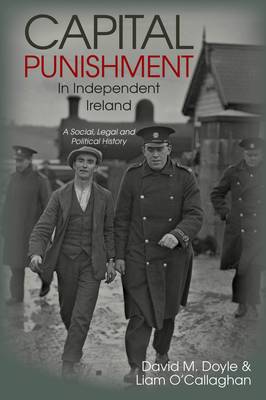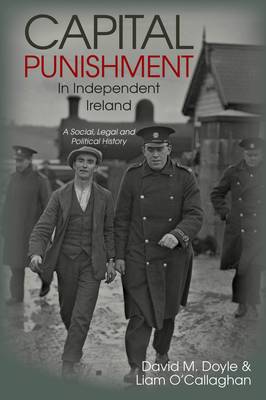
- Afhalen na 1 uur in een winkel met voorraad
- Gratis thuislevering in België vanaf € 30
- Ruim aanbod met 7 miljoen producten
- Afhalen na 1 uur in een winkel met voorraad
- Gratis thuislevering in België vanaf € 30
- Ruim aanbod met 7 miljoen producten
Capital Punishment in Independent Ireland
A Social, Legal and Political History
David M Doyle, Liam O'CallaghanOmschrijving
This is a comprehensive and nuanced historical survey of the death penalty in Ireland from the immediate post-civil war period through to its complete abolition. Using original archival material, this book sheds light on the various social, legal and political contexts in which the death penalty operated and was discussed.
In Ireland the death penalty served a dual function: as an instrument of punishment in the civilian criminal justice system, and as a weapon to combat periodic threats to the security of the state posed by the Irish Republican Army (IRA). Through close examination of cases dealt with in the ordinary criminal courts, this study elucidates ideas of class, gender, community and sanity and explores their impact on the administration of justice. The application of the death penalty also had a strong political dimension, most evident in the enactment of emergency legislation and the setting up of military courts specifically aimed at the IRA. As the book demonstrates, the civilian and the political strands converged in the story of the abolition of the death penalty in Ireland. Long after decision-makers accepted that the death penalty was no longer an acceptable punishment for 'ordinary' cases of murder, lingering anxieties about the threat of subversives dictated the pace of abolition and the scope of the relevant legislation.
Specificaties
Betrokkenen
- Auteur(s):
- Uitgeverij:
Inhoud
- Aantal bladzijden:
- 306
- Taal:
- Engels
Eigenschappen
- Productcode (EAN):
- 9781789620276
- Verschijningsdatum:
- 31/12/2019
- Uitvoering:
- Hardcover
- Formaat:
- Genaaid
- Afmetingen:
- 157 mm x 236 mm
- Gewicht:
- 589 g

Alleen bij Standaard Boekhandel
Beoordelingen
We publiceren alleen reviews die voldoen aan de voorwaarden voor reviews. Bekijk onze voorwaarden voor reviews.











